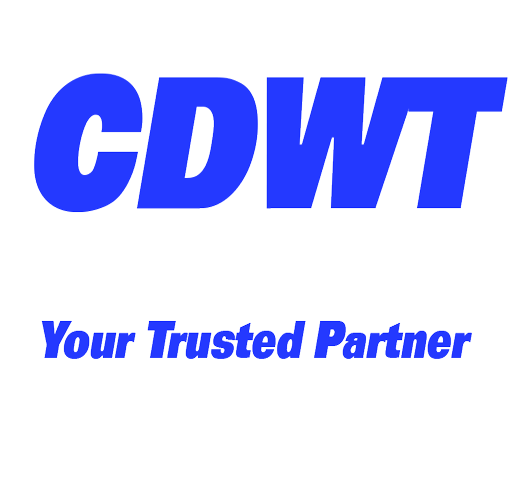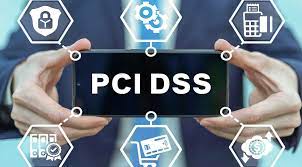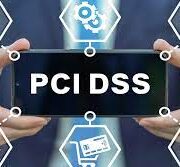PCI DSS – Payment Card Industry Data Security Standard – Compliance Services
Achieve a superior information security strategy by using cutting-edge technology and creativity

PCI-DSS Compliance: A Necessity in the Contemporary Digital Era?
In this era of digital payment, a single breach of customers’ financial data may have unimaginable consequences for any firm, including heavy fines, severe reputational harm, litigation costing millions of dollars, and a significant loss of customer confidence. Complete security of every payment transaction is thus no longer only a need, but a determinant that determines the success or failure of any firm today. Compliance with the PCI Data Security Standard safeguards cardholder data from fraudulent activity while greatly minimising the risk of data loss for businesses.
CDWT is available to assist businesses in evaluating their possible exposure to financial, organisational, and operational losses while handling cardholder data. Our specialists give best practises and standards for firewall installation, data encryption, anti-virus software deployment, and more, in order to protect the cardholder data on your enterprise’s end. We also assist you in limiting access to cardholder data and network resources. With CDWT’s PCI DSS services, the security of each of your financial transactions is assured.
What is PCI DSS Compliance Exactly?
The Payment Card Industry Data Security Standard, or PCI DSS, is a collection of security standards created by the PCI Security Standards Council to aid firms in safeguarding their customers’ payment information against fraud by implementing high-level payment security. Each of these entities that handle sensitive authentication data and send cardholder data must adhere to these procedures and standards. In order to acquire PCI compliance certification, organizations that accept debit or credit card payments must undergo a comprehensive PCI DSS security audit encompassing all the main components of data security, such as access management, data retention, data encryption, and authentication.
How does your organization benefit from PCI DSS compliance?
Prevents breaches in data security
Reduces customer identity theft risks
Enhances client confidence and loyalty
Avoids costly obligations and fines
Creates safe and lasting procedures
Significant Obstacles to Implementing PCI DSS Standards
Compliance with PCI DSS might be an insurmountable obstacle for firms, since it requires committed resources to verify the process and adhere to best practises. PCI DSS compliance is required for businesses doing online transactions.
Long list of prerequisites
Complying with over 246 required standards and maintaining PCI DSS compliance for a year requires the assistance of certified compliance specialists with extensive expertise (PCI DSS, ASV, QSA).
The specialized terms
PCI DSS, unlike ISO and other industry standards, is very technical. To achieve the criteria, in-depth knowledge of security system integration and security technologies is required.
Organizational pressure
Pressure from internal and external stakeholders to acquire PCI DSS certification as quickly as feasible often results in poor execution of rules, putting cardholder data and the reputation of the organization at risk.
Competence void
Throughout the compliance process, a lack of trained security assessors or other specialists often leads to a significant competence gap in terms of understanding and meeting PCI DSS rules.
Establishing the scope
From PCI compliance assessment through PCI DSS compliance validation and detailed documentation, the whole scope must be outlined in advance for efficient planning and execution.
Clearing the Silos: PCI DSS Compliance Best Practices
Develop and preserve network security
-
Firewall configuration
-
Unique passwords
-
Secure cardholder data
-
From theft and unapproved modification
-
Sufficient encryption while transmission
-
Create and maintain a programme for vulnerability management
-
Installation of antivirus program
-
Maximum protection for all systems and applications
-
Implement effective access control measures
-
Limited access to cardholder information
-
Assign unique IDs to cardholders and systems
-
Physical access to cardholder data is restricted.
-
Regular network testing and monitoring
-
Track and monitor access to network resources
-
Schedule frequent testing for all network security solutions.
-
Implement and comply with data security procedures
-
Policy on security for workers and contractors
-
Technology usage guidelines
-
Employee security education programs
-
Managed Compliance Services from CDWT
CDWT’s Managed Compliance Services enable enterprises to supplement their IT infrastructure, security networks, cloud platforms, data structures, and software/apps in order to become completely compliant with global legislation and standards.
We investigate customer landscapes, access functionalities, and workloads in collaboration with A-star compliance professionals and modern technologies to validate whether or not they adhere to respective protocols while bestowing effective strategies and employing critical processes to risk-proof compliance globally. CDWT Managed Compliance Services protect essential cloud platforms including hyperscaler cloud landscapes, private clouds, third-party environments, on-premises or remote ecosystems, and assist them in becoming completely compliant with the following services:
IRAP
The Information Security Registered Assessors Program (IRAP) is a collection of security procedures and frameworks designed to audit, assess, and measure an organization's cybersecurity effectiveness in accordance with Australian security laws and standards. The Australian Signals Directorate keeps an eye on this (ASD)
Bank Negara Malaysia
Bank Negara Malaysia oversees a key compliance structure and laws pertaining to BFSI operations and financial institutions (BNM)
Oman's Central Bank
Oman's Central Bank has approved regulations that apply to all BFSI services including financial institutions.
SAMA
Saudi Arabian Monetary Authority-regulated centralized cybersecurity framework and methods to aid enterprises across all sectors in efficiently protecting their operations, assets, and data.
FINMA
Swiss Financial Market Supervisory Authority regulations and frameworks for supervising banks, financial institutions, insurance companies, stock exchanges, securities dealers, and so on.
UAE Regulations
Enhanced UAE compliance with relation to data residency, privacy, and other legislation affecting corporate activities in the UAE.
RBI
Security, operational management, data administration, and other compliance rules apply to BFSI operations and financial institutions. Delivered by the Reserve Bank of India, the nation’s leading financial body.
MAS
The Monetary Body of Singapore, the country's primary BFSI authority, established guidelines on outsourcing financial institutions' operations and procedures.
OJK
The Financial Services Authority of Indonesia (Otoritas Jasa Keuangan) issues and monitors regulations on the running and operations of financial institutions.
GDPR
The General Data Protection Regulation (GDPR) is a set of advanced laws that control the gathering and use of personal data from European Union residents.
PCI-DSS
The Payment Cards Industry Data Security Standard establishes guidelines and benchmarks to guarantee that all businesses receiving, storing, and processing credit card data operate in a secure environment.
HIPAA
The Health Insurance Portability and Accountability Act establishes standards and protocols to safeguard the privacy, confidentiality, and integrity of sensitive patient information. Healthcare organizations get the HITRUST (Health Information Trust Alliance) accreditation as verification that they meet HIPAA regulations.
GXP
The GXP compliance standard is an abbreviation for regulatory standards and recommendations applicable to a larger range of life sciences, food, and medical items, among other things (the 'X' stands for any letter appropriate vertically). Good Laboratory Practices (GLP), Good Clinical Practices (GCP), and Good Manufacturing Practices (GMP) are a few examples (GMP).
ISO Standards
Introduced by the International Organization for Standardization, these frameworks validate the worldwide standard standards applicable to any item or service. The number after an ISO denotes the category: ISO-27001, ISO-27017, ISO-27018, ISO-22301, ISO-20000, and so on.





